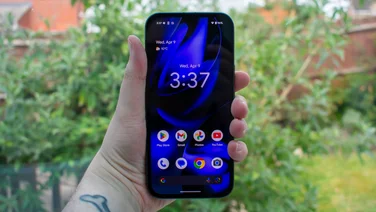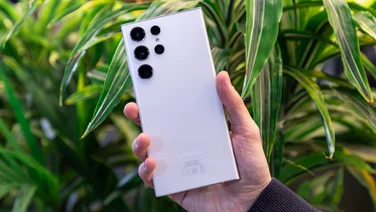To help us provide you with free impartial advice, we may earn a commission if you buy through links on our site. Learn more

The Google Nexus 6 would have had a fingerprint reader if it wasn’t for Apple, according to the former boss of Motorola. The super-sized smartphone has a dimple on the rear that helps owners keep a grip on the handset, but it was originally intended to be more than a finger rest.
Dennis Woodside, the former CEO of Motorola, which was bought and later sold by Google, says that Apple effectively scuppered the company’s plans to embed a fingerprint reader on the back of the handset. “The secret behind that is that it was supposed to be fingerprint recognition, and Apple bought the best supplier,” Woodside told The Telegraph. “So the second best supplier was the only one available to everyone else in the industry and they weren’t there yet.”
Woodside claims that the addition of the fingerprint reader “wouldn’t have made that big a difference” to the fortunes of the 6in handset, which was one of the last devices made by Motorola before the company was sold to Lenovo, just two years after Google bought the handset maker.
Check out our latest smartphone reviews
The fingerprint reader is key to the Apple Touch ID system, which the company launched in late 2013 alongside the launch of the iPhone 5S. Touch ID is used to unlock the handset, as well as a means of verifying payments with Apple’s cashless payment system, Apple Pay.
Other Android handsets have included a fingerpint sensor to rival Apple’s, most notably the Samsung Galaxy S5, although neither Samsung nor Google have released a cashless payment system that compares to Apple Pay.
Dennis Woodside left Motorola when the business was sold to Lenovo, and is now chief operating officer of online synchronisation service Dropbox. We presume he didn’t sign a non-disclosure agreement whilst still with Motorola, or else his interview with The Telegraph could prove very costly indeed.




